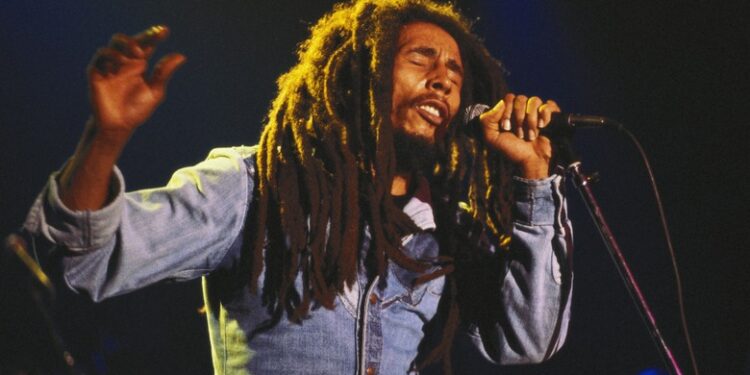Bob Marley, Jamaica’s most celebrated musician, remains a cultural and political icon nearly five decades after his untimely death. His music carried not only the rhythm of reggae but also messages of resistance, unity, and hope, transforming him into one of the most influential figures of the 20th century.
Early life in Jamaica
Robert Nesta Marley was born on 6 February 1945 in Nine Mile, a rural village in Jamaica’s Saint Ann Parish. Raised by his mother, Cedella Booker, Marley experienced the struggles of poverty early on. His mixed heritage – an Afro-Jamaican mother and a white Jamaican father – shaped his outlook on race and identity, themes that would later echo through his music. Moving to Kingston’s Trenchtown as a teenager exposed him to the vibrant local music scene, which became the foundation for his career.
The rise of The Wailers
In the early 1960s, Marley co-founded The Wailers with Bunny Livingston (later Bunny Wailer) and Peter Tosh. Initially influenced by ska and rocksteady, the group evolved into pioneers of reggae. Their breakthrough came in the early 1970s with hits such as Stir It Up and Get Up, Stand Up. The Wailers’ partnership with Island Records introduced reggae to international audiences, establishing Marley as the genre’s leading voice.
Music as political resistance
Marley’s songs were more than entertainment; they were political statements. In tracks like Exodus, War, and Redemption Song, he addressed themes of oppression, freedom, and African unity. During Jamaica’s politically turbulent 1970s, Marley emerged as a unifying figure. His 1978 “One Love Peace Concert” brought together rival political leaders Michael Manley and Edward Seaga in a symbolic act of reconciliation.
Global recognition and influence
By the late 1970s, Marley had become a global star. Albums such as Exodus (1977) and Legend (1984, posthumously) cemented his legacy. His music reached audiences far beyond Jamaica, spreading reggae’s distinctive sound across Africa, Europe, and the Americas. Marley also brought international attention to Rastafarianism, a spiritual movement that deeply influenced his lyrics, appearance, and worldview.
Illness and legacy
Marley was diagnosed with acral lentiginous melanoma in 1977, a rare form of skin cancer. He continued to perform and record despite his declining health, but died in Miami on 11 May 1981 at just 36 years old. His funeral in Jamaica was a national event, blending Rastafarian and Christian traditions, and attended by thousands.
Today, Bob Marley is remembered not only for his music but also for his impact on culture and politics. His songs remain rallying cries for peace and justice, and his image – dreadlocks, guitar, and serene smile – is an enduring symbol of resistance and hope worldwide.
REFH – Newshub, 23 September 2025



Recent Comments